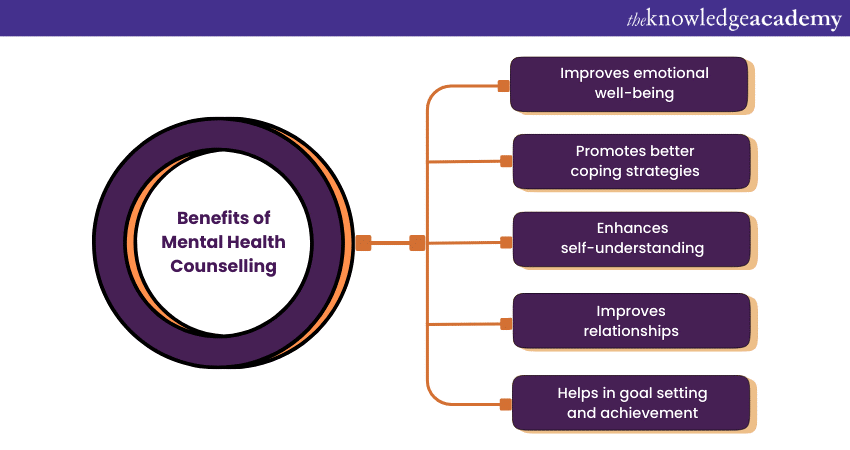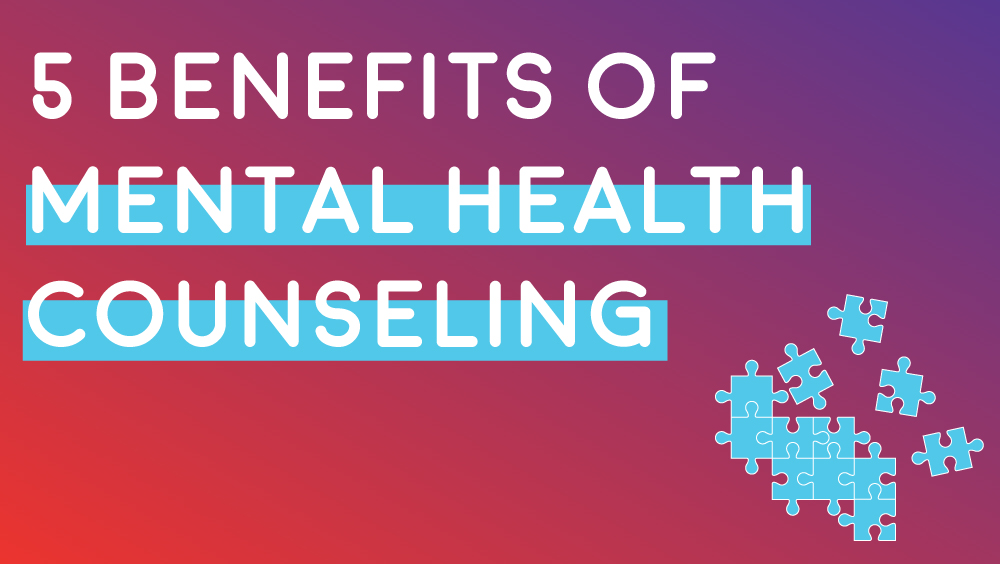8 Simple Techniques For Mental Health Counseling
8 Simple Techniques For Mental Health Counseling
Blog Article
Some Known Details About Mental Health Counseling
Table of ContentsMental Health Counseling for DummiesThe smart Trick of Mental Health Counseling That Nobody is Talking AboutMental Health Counseling Things To Know Before You Get ThisOur Mental Health Counseling DiariesGetting My Mental Health Counseling To Work
Via therapy, you can gain understanding right into your own patterns of actions and interaction, which can result in even more satisfying and pleasing relationships with pals, household, and romantic partners. What we believe, we materialize. If you're eaten with adverse emotions and adverse thoughts that are interfering with your life, treatment can assist., or there are various other unfavorable ways you behave. Therapy can aid you modify those behaviors that are having an unfavorable effect on your globe and partnerships.

The significance of treatment surpasses your mental health and wellness. Getting treatment to resolve certain facets of your life can assist you be a lot more productive in other areas, including work. Some research has actually also revealed that there's a straight connection in between looking for psychological health aid and a decrease in missed work.

Mental Health Counseling for Beginners
There are also more advantages of treatment than simply the ones we have talked about., or construct relationships (romantic or those with family or friends) in a healthy means.
For the purpose of the existing research study, perceived benefits and obstacles to psychological health help-seeking are being explored. Previous study discovered that perceived barriers have a considerable impact on university student' wellness habits selections (Von Ah, Ebert, Ngamvitroj, Park & Kang, 2003). Viewed advantages and obstacles to help-seeking were particularly chosen because of their influence on decision-making and inevitably activity (Glanz, Rimer, & Su, 2005).
Today research study looks for to analyze whether or not stigma acts as an obstacle to treatment among university pupils. Eisenberg et al. (2011) proposed that suspicion regarding therapy efficacy is one more barrier to taking part in treatment. Research findings revealed that university trainees recommended numerous obstacles to joining therapy. Mental Health Counseling. Among these were: (1) liking to deal with psychological health issues themselves, (2) not having enough time to take part in therapy, (3) inquiries regarding whether psychological health therapy works in remediating troubles, (4) a belief that tension is regular or the trouble will certainly get much better without treatment, (5) lack of money, and (6) bother with what others would certainly think if they discovered therapy involvement.
Team in university psychological health and wellness centers may be regarded as hostile, and long wait times for solutions might be "repulsive" for students. Factors facilitating extra favorable attitudes are frequently at the contrary post of those variables recognized as barriers.
Facts About Mental Health Counseling Uncovered
One in three (34.6%) reported surviving school and one in 4 (23.3%) reported living with moms and dads. Nearly half of pupils were associated with university companies and 1 in 10 reported being in a fraternity or sorority. Even more than one-third of students (38.1%) reported that they had a relative or pal with a detected mental health and wellness problem.

Things about Mental Health Counseling
Univariate F-tests identified specific subscale items that significantly differed. Ladies were much less most likely than men to view individuals who go to therapy as psychologically weak, people who go to counseling as insane, to really feel that people with mental illness should manage issues on their own, that individuals that most likely to therapy as unable to address issues, that individuals who most likely to therapy are find this careless, and to really feel that individuals who most likely to therapy are different from normal individuals in an unfavorable method.
In a similar way, research results exposed that ladies were substantially much less anchor likely than men to hold stigma-related mindsets. This is consistent with previous study which additionally discovered that men hold greater degrees of perceived preconception than ladies (Chandra & Minkovitz, 2006). Based on research study searchings for, it appears that men might be less likely than ladies to seek treatment because of reduced perceived barriers as well as high stigma-related mindsets.
Getting The Mental Health Counseling To Work
On top of that, university health and wellness specialists might use curricula targeting men with details on the advantages of mental health and wellness treatment and the significance of seeking assistance when needed. All techniques ought to be assessed with future research study to identify the impact on college pupils, specifically men. In contrast to general population studies which reveal that women are more probable to seek mental health services compared to men (Haunstein et al., 2006; Mackenzie, Gekoski, & Knox, 2006), today research located no considerable differences in the number of regarded obstacles to help-seeking habits based on sex.
Researchers guess that this is mostly due to typical social standards and gender roles that defined males based upon strength and absence of emotional expression (Addis & Mahalik, 2003; Ang, Lim, Tan, & Yau, 2004; Mojtabai, 2007). On the whole, there have actually been mixed outcomes among the university student population pertaining to sex differences (Rosenthal & Wilson, 2008). This searching for was unexpected and can highlight that those who had actually received counseling had a far better idea of delay times and various other "gain access to" obstacles that may make it tough to discover this begin treatment. Probably, participants that have gotten therapy view a lot more obstacles than individuals who have actually not obtained counseling considering that looking for counseling solutions once more could include fear of self-disclosing individual details to a new counselor.
Report this page